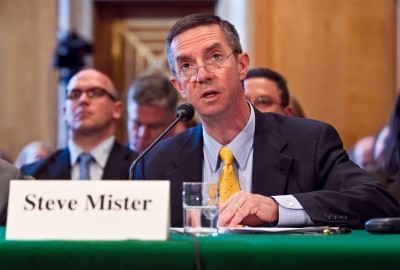More transparency needed for AERs, says industry
At the end of September, the US Food and Drug Administration (FDA) said there had been 604 adverse event reports (AERs) – including five deaths – in the six months to April 15 2008.
These figures were below estimates, and were generally well received by industry, which had supported the implementation of the new AER system last year. However, details of the adverse events or the products they were related to were not released, and this prevents supplement manufacturers from identifying – and solving – the problems that remain, say industry members.
Latest AERs
AERs, which are designed to bring greater transparency to the dietary supplements industry and protect consumer safety, can range from question marks over a supplement’s efficaciousness to, in extreme cases, death or disability.
FDA’s Office of Nutritional Products, Labeling and Dietary Supplements in the Center for Food Safety and Applied Nutrition said it had received 368 mandatory reports from dietary supplement manufacturers and 236 reports from consumers or health care professionals.
There were five deaths and 85 hospitalizations reported, although an FDA spokesperson said in press reports that "some of these deaths were likely due to underlying medical conditions". No supplements or categories were named.
Not enough transparency
However, according to Loren Israelsen, executive director of supplement trade group United Natural Products Alliance (UNPA), simply reporting figures leaves an information gap.
“What we don't know, and what FDA has not provided, is more detail. We think it is incumbent that FDA do so in order for industry to evaluate genuine serious adverse event reports, to address either quality failures or supply chain management issues,” he wrote in an e-mail.
Steve Mister, president and CEO of another trade group, Council for Responsible Nutrition (CRN), also said it is important to put the figures into context. He stressed the importance of providing follow-up information as AERs do not necessarily prove a link between the supplement and the adverse event.
“When consumers contact a manufacturer with a potential health-related concern, those reports in isolation don't really tell us a lot.”
“Remember that AER's are not causal – many of these AER's could have been related to underlying medical conditions in those individuals or completely unrelated to supplement usage altogether. Without analyzing the medical history, it's impossible to know,” he said.
Better than before
Kenn Israel vice President of marketing at encapsulation firm Robinson Pharma said that industry needs to capitalize on the positive figures “not by promoting our current results but by endeavoring to do better”.
“I am hopeful that high risk product segments can be identified and that industry (not regulators) will be allowed to responsibly manage the risk exposure to the public,” he said.
“The new GMPs, programs like SIDI, HACCP programs, and the many third party audit and consulting services will support this goal. We are again positioned to make the choice – Be independently accountable for our actions or … the Nanny State will make the decisions for us. “
Accountability
One of the sponsors of the AER regulation, the Democrat Senator Richard Durbin, also praised the progress that had been made.
"Five years ago, the dietary supplement industry claimed they had no reports of health problems — zero — related to their products," Durbin told USA Today. "Thanks in part to our legislation, we today know there are hundreds of serious problems each year, many involving hospitalization and death.”
In response to an inquiry from NutraIngredients-USA.com, Senator Durbin’s office said the Senator had been referring to a report on the supplement firm Metabolife, which five years ago had claimed it had received no reports of adverse effects. In fact, the company had allegedly been covering up these adverse event reports.
To access the report, click here.







